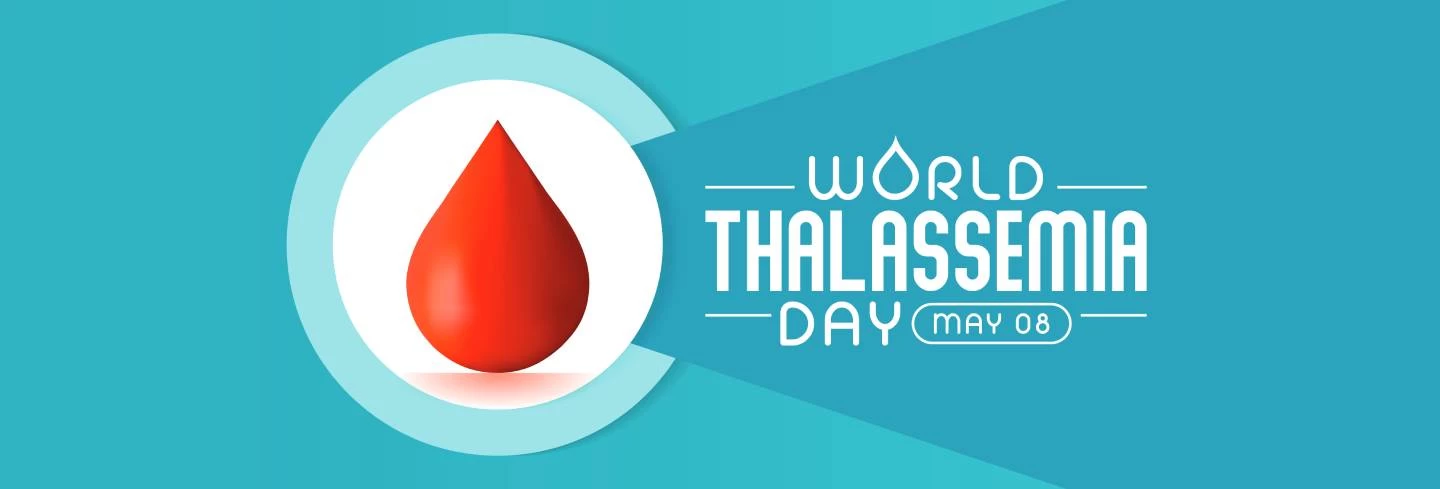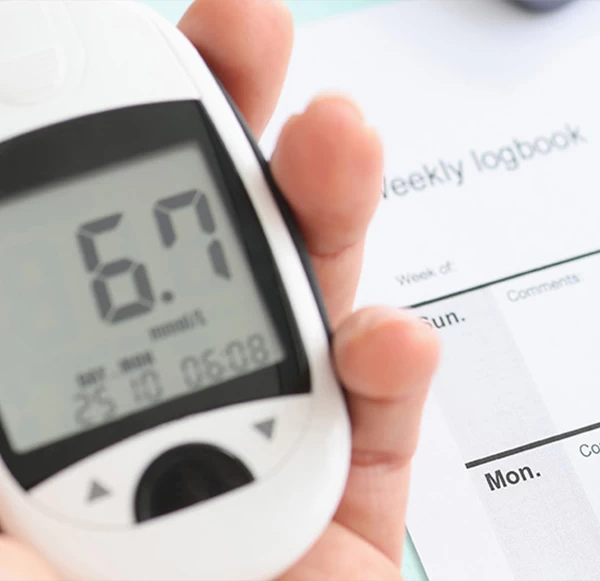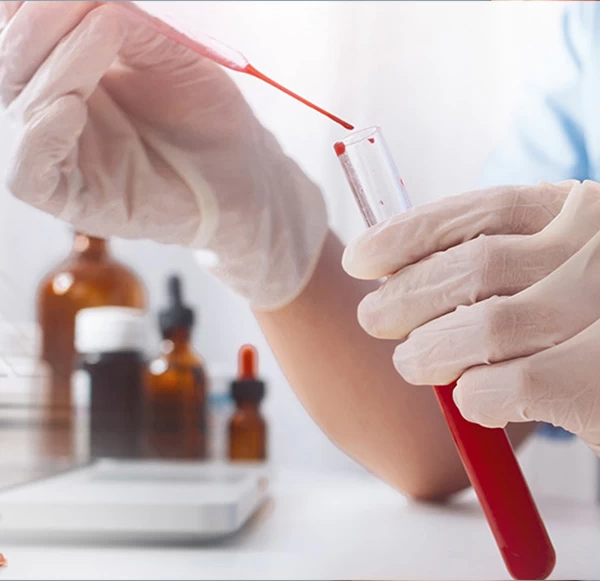- Email Us

A silent story in your blood: Could it be thalassemia?
Many people walk around with symptoms of fatigue and weakness, brushing them off as everyday tiredness. But what if these signs are your body’s way of flagging something deeper—like thalassemia? This inherited blood disorder doesn’t just affect you—it could impact generations. Fortunately, with the power of early diagnosis and awareness, individuals and families can take control of their health journey and even break the chain of transmission. In this blog, we’ll decode the most important tests for thalassemia in simple language and explore how early detection leads to lifelong empowerment.
In this blog, we'll take you through the most important thalassemia tests, explain each one of them in detail, and tell you how thalassemia is diagnosed in simple, straightforward language. And if you want the best pathology lab in Delhi to get your tests done, we have a reliable recommendation to share as well.
Thalassemia represents a series of hereditary blood conditions affecting the production of hemoglobin—the protein within red blood cells responsible for carrying oxygen. Thalassemia patients have fewer normal red blood cells and lower hemoglobin levels than usual, which causes fatigue and weakness and may bring about complications unless well handled.
Diagnosis is not only important for treatment but for genetic counseling and family planning as well. This is where thalassemia screening is lifesaving.
The condition is typically diagnosed through a series of blood tests. They identify the composition and amount of red blood cells, the level of iron, and the presence of any genetic defects. Listed below are the primary methods through which thalassemia is diagnosed by physicians:
The initial step to diagnosing thalassemia is to have a CBC test. A CBC test will check the following elements in your blood:
In thalassemia, MCV and hemoglobin levels typically are below normal. CBC provides the first hint that there's something not right about your blood.
Also referred to as the blood smear test, this easy but effective diagnostic tool gives you a visual inspection of your red blood cells using a microscope. In people with thalassemia, red blood cells usually appear
This test confirms the results from the CBC and provides another level of proof for screening for thalassemia.
Because anemia may also be the result of deficiencies in iron, iron studies are needed to distinguish iron deficiency anemia from thalassemia. They include:
Iron levels are usually normal or elevated in thalassemia, whereas in iron deficiency anemia they are low. Therefore, iron studies form an important component of thalassemia diagnostic techniques.
This is a specific test to detect various hemoglobin types in your blood. It's one of the key tests for diagnosing thalassemia, as it is able to detect abnormal hemoglobin variants caused by the disorder.
A higher-performing and higher-precision type, known as high-performance liquid chromatography (HPLC), is usually employed in top laboratories to identify the following:
If there is a family history or if preliminary test results are questionable, genetic testing will confirm hemoglobin gene mutations. This is important for families planning to have children.
Although not always performed for all patients, in complicated or serious situations, bone marrow testing may be advised. This procedure rules out other causes of anemia and tests bone marrow for function. It has the potential to provide additional insight into how your body is making blood cells.
Knowledge is Power—And It Starts with a Simple Test
Thalassemia may sound daunting, but with awareness and timely action, it doesn’t have to define your future. By understanding the right tests and what they mean, you empower not just yourself but future generations with informed choices and better health. Whether it's for yourself, your children, or family planning, staying aware is the first step toward resilience. An early diagnosis can be the difference between uncertainty and clarity, between inherited challenges and informed prevention.
The sooner thalassemia is diagnosed, the better its management is achieved. With early detection, patients are entitled to:
Have questions about thalassemia or curious about your risk? Let’s talk. Empower yourself with knowledge, connect with compassionate experts, and take charge of your health story. Whether you're planning a family, managing symptoms, or simply seeking peace of mind—awareness begins with a conversation.
Thalassemia may have a scary-sounding name, but with proper tests and a skilled lab, it's under control. A routine CBC may be the start of getting to the bottom of it. If you, or a member of your family, have been dealing with anemia, don't dismiss it. Get tested. Get answers. Gain control.
Ready to schedule your thalassemia test? Put your health in the hands of Mahajan Imaging & Labs—Delhi's top pathology lab for thorough and empathetic testing.
Yes, early signs of thalassemia are seen in a routine complete blood count (CBC) test. Anomalies in red blood cells and low hemoglobin levels may indicate thalassemia, but further testing, such as hemoglobin electrophoresis or HPLC, is mandatory to confirm.
No. They are both different conditions, although they share similar symptoms such as fatigue and pale skin. Thalassemia is hereditary, whereas iron deficiency anemia is caused by low levels of iron. Iron studies distinguish the two.
Yes. If thalassemia runs in your family, thalassemia screening is strongly advised, even if you’re planning to have children. It is possible to manage the condition and avoid passing it to children with early detection.
For proper and thorough testing, Mahajan Imaging & Labs is one of Delhi's top pathology laboratories. Their sophisticated technology and well-trained staff guarantee correct results, whether one is getting a simple CBC or complex genetic testing.
You can book your test with us through our website, WhatsApp, or by calling our customer care. For quick and easy booking, you can chat with us on WhatsApp at +91 88828 97661 or speak directly to our support team at +91 11 4118 3838. We offer both in-center testing and home sample collection, ensuring flexibility and convenience based on your preference.
Visit us at mahajanimaging.com to schedule your appointment or learn more about our full health check-up packages.




